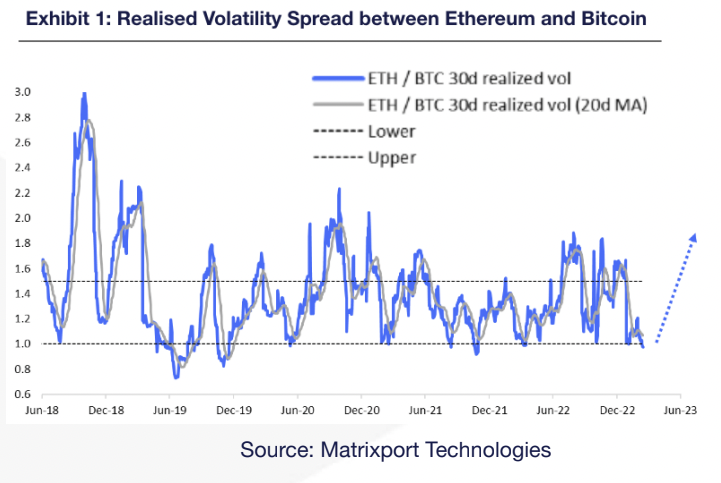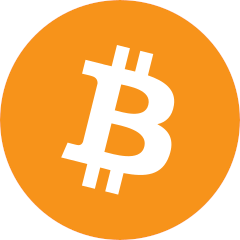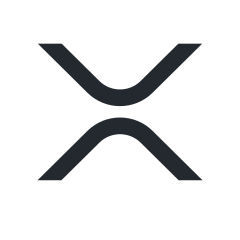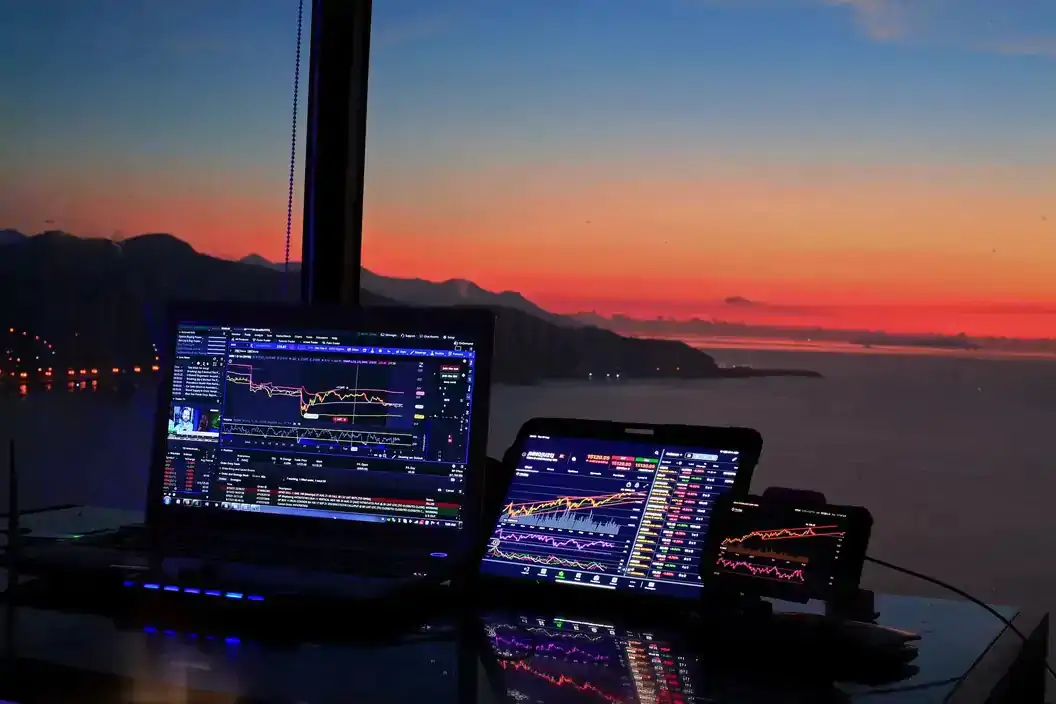Trading cryptocurrencies is quite challenging right now, as the market is caught between opposing forces of issues at crypto-friendly bank Silvergate, operationalbottlenecks at major exchanges and optimism about Ethereum's impending Shanghai upgrade.
Per crypto services provider Matrixport, The best way to navigate the melee is by setting relative value trades – a strategy of trading one or more securities in relation to another.
"It's time for relative value trades. Traders can now buy call options on ether and finance them by selling calls on bitcoin with the profit potential quite strong," Markus Thielen, head of research and strategy at Matrixport, said in a note to clients on Tuesday. "This allows traders to buy a high-volatility asset (ether) for the price of a lower-volatility asset (bitcoin)."
Options are derivative contracts that give the holder the right, but not the obligation, to buy or sell the underlying asset at a predetermined price on or before a specific date. A call option gives the right to buy, while the put option confers the right to sell.
Buying a call/put option is akin to purchasing insurance against bullish/bearish moves. The buyer compensates the seller for offering protection by paying a premium while taking the trade.
Matrixport's suggestion involves collecting a premium by selling a bitcoin () call option and using the same to fund the purchase of an ether () call option.
The trade idea is based on the assumption that the spread between the annualized 30-day realized or historical volatility of ether and bitcoin would bounce from the current unusually low level. That, coupled with the upcoming Ethereum Shanghai upgrade, would make ether calls pricier relative to bitcoin calls.
"The volatility spread between ether and bitcoin has compressed to below 1. This has only occasionally happened and the spread has traded above 1 in 93% of the observations during the past four years," Thielen noted.
Volatility is mean-reverting and has a positive impact on options prices. In other words, periods of unusually low volatility are followed by increased price turbulence, which, in turn, boosts demand for options, making them pricier. Thus, traders tend to buy options when volatility is lower than its long-term average.

Realized or historical volatility measures daily changes in the price of a security over a particular period of time. (Matrixport Technologies) (Matrixport Technologies)
The spread between ether and bitcoin realized volatility gauges looks undervalued relative to its historical standards and could mean-revert as we head into the Shanghai upgrade, which is expected to bring price turbulence.
"The spread has averaged 1.39 over the year and offers great risk/reward potential here," Thielen noted, explaining the rationale behind purchasing ETH calls by selling BTC calls.
The Shanghai upgrade, a backward-incompatible hard fork due sometime in the coming weeks, will open withdrawals of ether staked in the Ethereum network since December 2020. The upgrade will de-risk staking and increase capital efficiency, opening doors for more investor participation and perhaps ether price gain.
"A wave of new participants who had previously been watching from the sidelines can potentially add a level of buying pressure to ETH, especially if institutional capital can be enticed," BINANCE Research said in a report last month.
 $22,388.17
$22,388.17 $1,566.43
$1,566.43 BNB$286.45
BNB$286.45 XRP$0.36880708
XRP$0.36880708 $11.28
$11.28DISCLOSURE
Please note that our privacy policyterms of usecookiesdo not sell my personal information has been updated.
The leader in news and information on cryptocurrency, digital assets and the future of money, CoinDesk is a media outlet that strives for the highest journalistic standards and abides by a strict set of editorial policies. CoinDesk is an independent operating subsidiary of Digital Currency Group, which invests in cryptocurrencies and blockchain startups. As part of their compensation, certain CoinDesk employees, including editorial employees, may receive exposure to DCG equity in the form of stock appreciation rights, which vest over a multi-year period. CoinDesk journalists are not allowed to purchase stock outright in DCG.



 BlocksInform
BlocksInform










